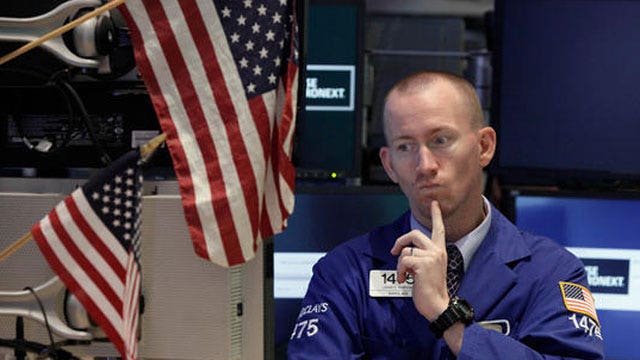Junior I-Bankers Say New 'Work-Life Balance' a Myth
Following the tragic death of an intern in Bank of America’s London unit, banks have announced new guidelines that will prevent senior executives from working their junior employees literally to death.
Or so they say.
Several first-year investment banking employees interviewed by FOX Business described the guidelines as little more than a public relations stunt to blunt criticism of the often brutal hours they work when they join a major investment firm. In fact, they say almost nothing has changed since banks in recent weeks have been announcing so-called “work-life balance guidelines” after the August 2013 death of BofA intern Moritz Erhardt.
In fact, while many banks no longer require these employee to work on Saturdays, for example, many still have to work Sundays even as their managers force them to put in additional hours during the regular work week.
“It’s complete bull s---,” said one Citigroup employee, pointing out that Citi’s guidelines cover only a small percentage of its junior staff – analysts and associates in its investment banking and capital markets departments. Sales and Trading employees, for example, work an average of 70 to 80 hours a week and do not appear to be covered by the new guidelines.
And the new rules are riddled with exemptions. Citigroup still expects its junior employees to check their emails consistently even on the weekends just in case any “business-critical issues arise,” according to an internal memo. Credit Suisse mandates that conference calls should be “avoided” on Saturdays but its new work rules don’t apply to “live deals.”
Translation: analysts and associates are still forced to work on weekends when business is on the line, as it almost always is, several associates say.
At Goldman Sachs (NYSE:GS), junior employees must email their manager on Friday morning if they are to work on Saturday. Sounds humane, right? Not quite, several first-year associates tell FOX Business, since junior bankers are under intense pressure to make a good impression on their supervisors and work long hours over the weekend. Managers, meanwhile, are more than eager to approve all requests, they say.
“Their bosses had to go through the intense hours when they were starting out, so they want this next group of employees to go through it as well,” a Citigroup employee said. “It’s like hazing.”
Some bank executives say the new guidelines are working. “This is a marathon, not a sprint," David Solomon, co-head of the Investment Banking at Goldman, said in a statement.
Bank of America (NYSE:BAC) and Citigroup (NYSE:C) did not respond to requests for comment.
Goldman declined to comment on how many employees had requested approval to work on weekends due to “business-critical reasons” since their new rules went into effect in November. A company official said the firm is hiring more analysts, which could lead to a reduction in work hours for junior employees. The 2014 class will be roughly 14% larger than it was in 2013, the Goldman official said.
These changes follow the death of Erhardt, 21, who died of an epileptic seizure that may have been triggered by fatigue.
“We can only hope that they follow through on their policies,” said Charles A. Sullivan, Professor of Law at Seton Hall Law School.
Prior to the financial crisis, working long hours was considered a “rite of passage” for those starting out on Wall Street. Junior employees were certainly well compensated, earning six-figure salaries out of college.
But because of financial regulations such as Dodd-Frank, new recruits are getting paid less than their predecessors, causing some top college graduates to question whether the intense work environment is worth it. In fact, FOX Business has reported that many top graduates are opting for a career in fields like technology, where the pay might be equal or better and the work hours less intense.
Wall Street’s peak in pay came in 2006, when bonuses totaled $34.3 billion, according to government reports, compared to $20 billion in 2013, according to New York State’s comptroller Thomas P. DiNapoli.




















